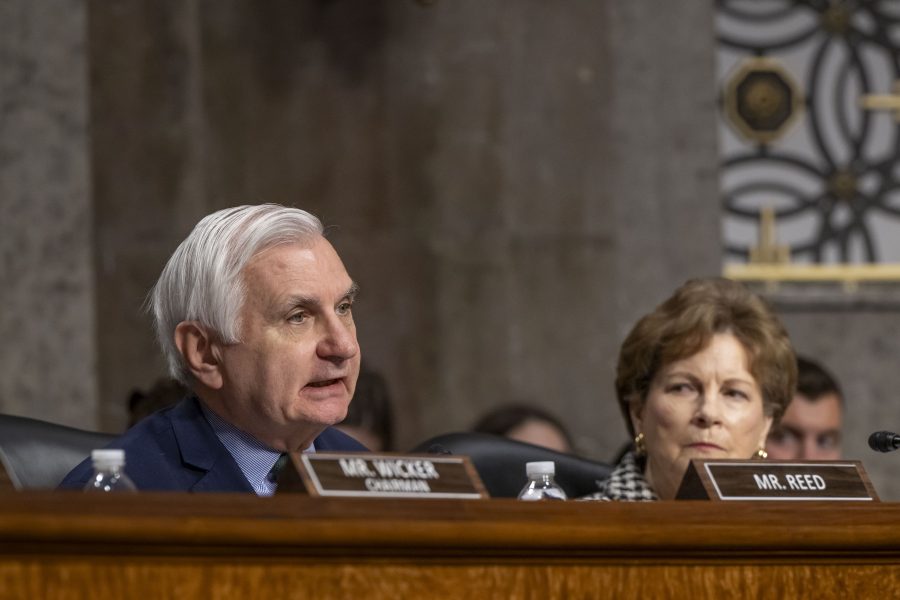Senior U.S. lawmakers on both sides of the aisle expressed frustration that they are being cut out of some of the Trump administration’s most central decisions on military policy and spending, namely the budget reconciliation process and Defense Secretary Pete Hegseth’s plans to slash the number of generals.
“We’re into a new, very complicated situation, which we’re trying to understand frankly,” Sen. Jack Reed of Rhode Island, the ranking Democrat on the Senate Armed Services Committee, told reporters during a Defense Writers Group event May 14. “We haven’t got yet a very clear plan of what they’re doing.”
One immediate concern involves efforts to boost defense spending through a process known as budget reconciliation. Congressional leaders of the Senate and House committees that authorize military spending have legislated $150 billion in add-on spending.
Republican Roger Wicker, the Mississippi Republican who chairs the Senate Armed Services Committee, wants assurance that the money will be used as Congress intends. During a hearing May 13, he asked nominees for senior Defense Department posts if they were committed to following Congressional intent for using the extra money. The nominees said they would.
But Reed, a West Point graduate who served in the Army’s 82nd Airborne Division, said he and his colleagues are worried that some of the “arcane rules” of how the reconciliation funds would be used were not entirely clear to lawmakers and there was a risk that the Pentagon would not follow their guidance and intent.
“I think it’s an extraordinary mistake,” Reed said when asked about the reconciliation budget by Air & Space Forces Magazine. “It surrenders congressional leverage and authority over the budget. Is it just a slush fund for the DOD to do what they want to do, or is it something that we can say, ‘No, these are the priorities?’”
Some Republicans share Reed’s frustration, including Mitch McConnell of Kentucky, the chairman of the Senate Appropriations subcommittee on defense and a former Senate majority leader. In a May 14 appearance at the Center for Strategic and International Studies, he complained that Hegseth had vowed to spend $1 trillion in fiscal 2026 on defense, only for the administration to reveal later that the funding actually included the added funding package from Congress. McConnell accused the administration of engaging in “budgetary sleight of hand.”
Other lawmakers say they are also searching for details. House Appropriations Chairman Rep. Tom Cole (R-Okla.) told Air & Space Forces Magazine May 12 that he still has not been given “a real clear understanding of what’s going to be in the reconciliation package.”
Part of the problem is the lack of a presidential budget request to add to in the first place. “It’s getting awfully late in the day,” Cole said. “We need more specificity, and then Congress will make some decisions.”
The concerns go beyond spending. While Hegseth has ordered at least a 20 percent cut in generals and admirals, Congressional leaders have not been told which positions will be cut and what analysis led to the decision, Reed said.
Reed said he and Wicker are exploring ways to ensure the funds in the add-on spending follow Congressional intent. He warned that a Pentagon move to ignore the lawmakers and “just consider the money their money” would establish a precedent that Republicans might regret if the Democrats were to win control of Congress and eventually the White House.
“The one rule here is what goes around comes around,” he said.

